How to buy your dream home overseas
Whether you’re looking for a holiday home, want to retire abroad, or you’ve given up on the overpriced UK property market and decided to buy overseas instead, here’s our ultimate guide to buying property abroad
Finding a property you love in the sun should be the easy part.
That’s when the hard work begins to make your overseas dream home – and life – a reality.
There are so many legal and practical things to consider. So we talked to the experts and distilled their advice into 18 top tips for buying in another country.
1. Where to buy
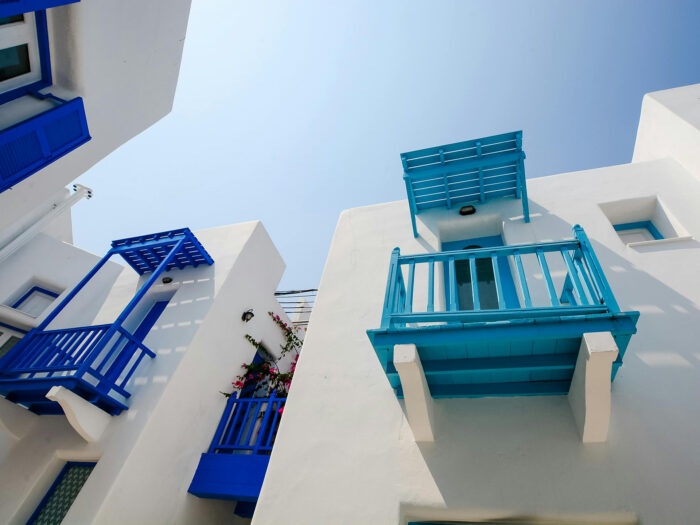
Image credit: Pexels
Things have changed since Brexit. It’s not as simple as it used to be to move to another European country.
At the same time, recent rulings in the EU look set to be the final nail in the coffin for the popular ‘golden visa’ schemes (see below) that offered residency in exchange for property investment.
Buying abroad is absolutely still possible, but it will likely require a bit more research and creative thinking than in the past…
The most popular places for Brits to buy abroad are Spain, France, Portugal, Florida and Cyprus.
There remain good reasons to consider buying in all of these, with established expat communities and property markets used to dealing with British clients – but things aren’t as simple or easy as they have been in the past:
- Spain – Has closed its golden visa scheme and is actively seeking to deter foreign property buyers in an attempt to stem its housing affordability crisis. The prime minister has even threatened to impose a 100% tax on foreign property purchases. But for now, there are lots of other visa options, and Spain remains a popular choice.
- France – Buying a property in France doesn’t guarantee you the right to reside in France, you’ll need a visa too. Check out the French Visas website to find out more about visa options.
- Portugal – No longer offers residency in return for property investment, but there are several visa options available, from passive-income visas suitable for pensioners to digital nomad visas (see below).
- Florida – There are no restrictions on non-citizens buying US homes, but it’s much more expensive now that the pound is weaker against the dollar. And owning property in the US doesn’t entitle you to a green card ie it doesn’t grant the right to live and work in America.
- Cyprus – If you invest €300,000 in a new property in Cyprus and can demonstrate an income of €50,000, you should get a residency visa.
All this means adventurous buyers today are looking further afield too – to Eastern and Central Europe and the Balkans, Türkiye, UAE, Singapore, Thailand, and Central America.
2. Residency matters
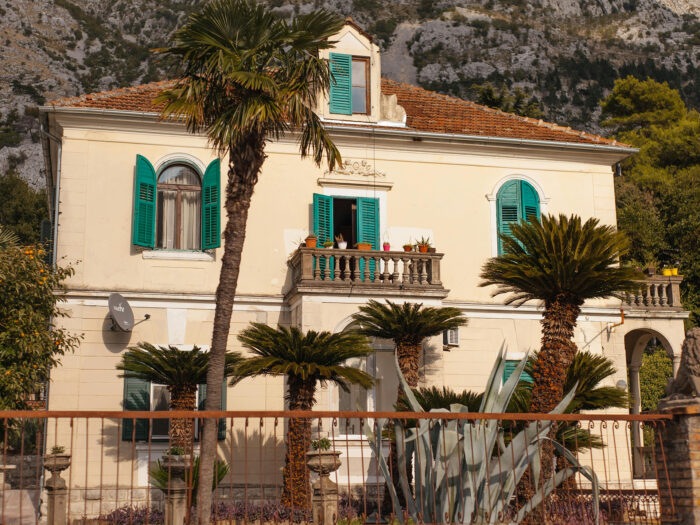
Image credit: Pexels
As we’ve seen, buying a property in another country doesn’t generally automatically grant you the right to live there permanently.
If you only plan on spending part of the year in your new place, temporary visitor visas should cover it.
But do check the rules so you don’t get caught out. If you’re planning a permanent move to another country though, you’ll definitely need to get a residency visa of some kind.
Different countries offer visas of different lengths to different categories of people, from students to entrepreneurs.
Each nation has its own rules about how you qualify for different types of visa, so you’ll need to do your research. Some places offer visas to those investing a certain amount of money in a business or in property.
Some offer visas to people doing certain types of highly-skilled jobs, or to those who can prove they have a regular passive income such as a pension. If you’re married to a citizen, you will usually qualify for residency.
Aaron Peake, personal finance and travel money expert at free credit-score app CredAbility, points out, “Residency visas are an area that catches people out.
“Requirements vary widely by country; you might need to be able to prove that you have a minimum income and provide proof of health insurance to qualify for a long-stay visa.
“It’s worth speaking to an immigration adviser who specialises in your chosen destination.”
3. Digital nomad visas
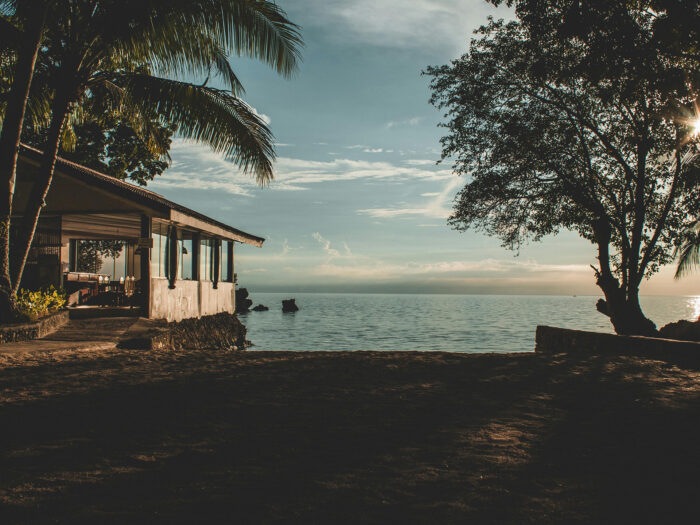
Image credit: Pexels
One potentially exciting new type of visa is the digital nomad visa. More and more countries are offering these visas, which, as the name suggests, are aimed at people who can do their online jobs from anywhere in the world.
These usually have a minimum income requirement – often in the region of £1,500 of £2,500 a month – and generally have a fixed time limit, though some are renewable.
You’ll have to prove your income or that you have a contract, and that you have health insurance.
Usually there are also restrictions on the proportion of your income you can earn from companies based the visa-issuing country.
Countries offering digital nomad visas include: Croatia, Greece, Georgia, Estonia, Japan, Korea, Costa Rica, Ecuador, Barbados, Antigua, and Türkiye.
As an example, the Spanish digital nomad visa is suitable for someone planning to live in Spain as a resident and “work remotely for a company or an employer (or self-employed) located outside of the Spanish national territory, and using exclusively computer telematics and telecommunication media and systems”.
Applicants must have an undergraduate or postgraduate degree from a university, college or business school “of prestige”, or at least three years’ work experience in their current field.
Self-employed visa-holders can get up to 20% of their work from Spanish companies.
Spouses or unmarried partners, dependent children and dependent direct relatives within the family unit can all be included in the visa too.
A digital nomad visa for Croatia, meanwhile, lasts up to 18 months and depends on you earning £2,900 a month (approx. depending on exchange rate), which you’ll need to prove via bank statements.
You’ll also need to show you have health cover and prove you work in the digital economy. You can bring your family with you on the visa.
Most nomad visas don’t grant permanent resident status – you’ll have to work out another way to gain permanent residency – but one could be a good way to test out life in a country before you commit to buying property.
4. Golden visas
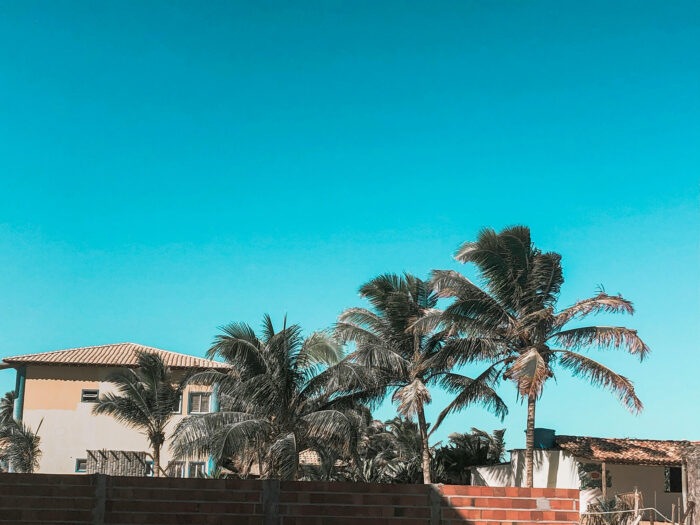
Image credit: Pexels
Another popular type of visa is the so-called ‘golden visa’ through which many countries used to offer residency or even citizenship in exchange for the purchase of property of a certain value.
Isobel Neilson, director at global immigration law firm Fragomen, explains, “British citizens, like all other non-EU nationals, now require a residency permit (visa) to live in an EU country.
“Depending on your circumstances, this could take the form of a golden visa, a passive income visa, a digital nomad visa, a work visa, or one based on EU family connections.
“A golden visa offers a flexible residency permit that can be maintained relatively easily, provided the underlying investment remains in place.
“It lets non-EU nationals, and their families, spend unlimited time in the EU country that issued the visa, and use it as a base for managing their remaining Schengen allowance in other EU countries. (The Schengen allowance is the maximum number of days non-EU citizens can stay in EU Schengen zone countries: currently 90 out of a rolling 180 days.)
“For many years, buying real estate was the easiest and most popular route to a golden visa in the EU.
“But that era is rapidly coming to an end. Governments across Europe – and globally – are phasing out or restricting this pathway in response to housing affordability crises, public backlash, and increasing pressure from the EU.
“In 2023, Portugal officially ended property investment as an eligible route for its golden visa.
“In April 2024, Spain closed its golden visa programme altogether, which had previously allowed real-estate investment.
“Although Italy still offers a golden visa, the qualifying investment cannot be in real estate.
“Greece is one of the few remaining golden visa programmes that still allows investment in real estate.
“However, there are varying price thresholds, depending on location, ranging from €250,000 to €800,000, along with restrictions on eligible property types and locations.
“Further afield, New Zealand’s newly re-launched Active Investor Plus visa is proving incredibly popular –particularly among US nationals.
“New Zealand law currently restricts most foreign buyers from purchasing existing residential property, but favourable changes may be on the horizon.
“In the UAE, which offers a broad range of golden visa options, there is a real-estate investment route that allows foreign nationals to obtain long-term residency by owning property (or properties) valued at AED 2 million or more.”
The golden days of golden visas are over, and, even if you can find a golden visa scheme in a country that appeals, there are lots of things to consider, such as: are there minimum-stay requirements (a minimum number of days each year that you need to live in the property)?
Will you gain full citizenship, or just residency rights? And how many years will it take to qualify for these?
5. Research, research, research
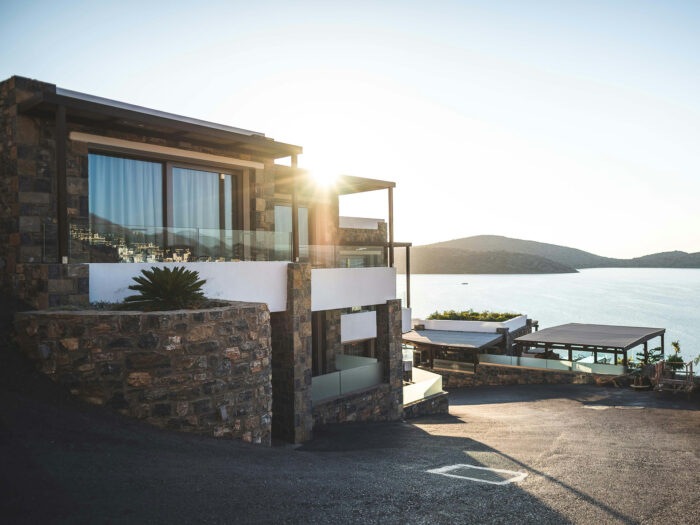
Image credit: Pexels
Wherever you’re looking to buy, when it comes to making a big purchase like a house, you can’t do too much research.
If you decide to look at a less familiar place, you’ll need to do plenty of research into the stability of the country, politically and economically; the strength of its property market; look at how good the infrastructure is; and how well the legal system works.
Is there an established expat population you can connect with?
Are you prepared to learn the language, if you don’t speak it already?
Other key indices to check out are annual property price growth, average house price to income ratio, and the comparative purchasing power of the local currency.
Online resources like Numbeo are good for this.
6. Try out the life
Some of your research needs to be in your chosen location, not just online. If possible, relocate there on a temporary basis to get an idea of what it will really be like to live there.
If you’ve got savings to spare or work you can do from abroad, why not book yourself an air ticket and a month in an Airbnb, to kick start your life in your new country?
Aaron Peake advises, “It’s surprising how many people buy in areas they’ve only visited for a week or two.
“A holiday destination might feel perfect when the sun is shining, but living there year-round can be very different.
“Spend time in different seasons if you can. It’s also worth talking to expats and local estate agents who can give you a clearer idea of day-to-day life, housing costs, and potential problems.”
7. Visit a show
A fun way to get some IRL expert advice could be visiting a foreign-property show, such as the Moving to Portugal event organised by the Portuguese Chamber of Commerce.
These are free events offering access to relocation experts, property specialists, and legal advisers.
The next Portugal shows are in London on 16 October and Edinburgh on 21 November. Advance registration required at www.movingtoportugal.org.uk.
8. Consider €1 homes
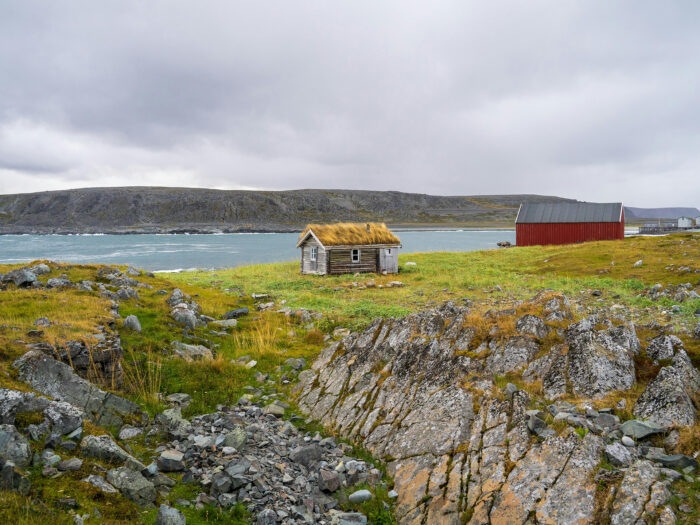
Image credit: Pexels
A scheme offering cheap rural properties to anyone willing to buy and renovate them could be a great way to get a property abroad if you’ve got some basic building skills, cash for renovations, and huge amounts of tenacity and patience.
The celebrated Italian schemes offering dilapidated homes in depopulated villages for €1 are still running in lots of locations all over Italy.
You need to commit to renovate within a few years and usually to make it your permanent home too.
Renovation costs can be steep; and delays long. But if you’ve got pockets deep enough to cope with the maxim ‘think of a big budget, then double it’, this could still be a relatively cheap way to get your own place in the country.
Remember, permits and paperwork will be a battle, as will finding trades in the middle of nowhere.
You’ll need the patience of a saint and resilience of steel. But it’s a route that has worked for some. Check out 1eurohouses.com to get started.
Other countries including Greece, Spain, France and Portugal copied the Italian scheme with ones of their own offering bargain basement properties or leases.
Few are still active but there are plenty of cheap rural fixer-uppers out there.
Just don’t underestimate the money and time required.
Or what about an akiya – abandoned home in rural Japan?
Plenty of due diligence to do before jumping in there, and you’ll need another visa route to residency.
But it’s another option to consider, if living in rural Japan appeals.
9. What about self-build?
You could be really brave and take on an international move plus a self-build!
John Small, of Ty Eco, which designs and manufacture traditional timber-framed homes and pre-insulated panels for passive homes, has done some in-depth research into the pros and cons of self-building in different countries.
He looked at everything from cost of building materials and labour to the price of land, complexity of regulations to climate, and used the data to draw up a table of the best places to self-build overseas.
His results suggested Holland is the best option for self-builders with Spain as the second best choice.
10. Get independent advice

Image credit: Pexels
The property-buying process varies a lot from place to place. It’s critical you get your own independent legal advice, translation and property valuation/survey.
Don’t rely on contacts given to you by the agent or developer selling you the property. Find you own. Get all legal documents translated too.
Even if a translation is provided, get your own done by an independent translator.
Vidyadhar Garapati, CEO of Movers.com, says, “A common pitfall is underestimating the importance of legal representation in the local language.
“Buyers often assume their UK solicitor can manage the process, but property laws vary wildly, and translation isn’t enough.
“Always use a local, independent lawyer who works in your best interest and is not connected to the seller or agent. This can protect you from issues like unclear land titles, zoning surprises, or unpaid debts attached to the property.”
11. Budget for fees
Aaron Peake, warns, “Buying a property overseas is not always as simple as picking a place you like and transferring the cash.
“There are a lot of moving parts involved, and the financial impact can be much bigger than many people expect.
“From a money point of view, one of the biggest mistakes people make is underestimating the total cost of buying.
“Overseas purchases often come with legal fees, local taxes, notary charges and estate-agent commissions that don’t always mirror what we’re used to in the UK.
“For example, in Spain, you could pay around 10-15% of the property price in extra fees.
So, a £150,000 property might actually cost closer to £170,000 when everything is included.
Or in Portugal, as www.movingtoportugal.org.uk points out, legal fees typically range from 1% to 1.5% of the property price, and buyers must also budget for IMT (property transfer tax), stamp duty, notary fees, and ongoing municipal property taxes.
They also advise hiring a bilingual property lawyer and tax adviser with international relocation experience to avoid costly mistakes and ensure a smooth process.
12. Rules for foreigners
Aaron Peake says, “It’s also important to check the rules around ownership for foreign buyers.
“Some countries limit where or what type of property non-citizens can buy.
“Thailand, for example, has restrictions on foreign ownership of land. You might only be allowed to buy a leasehold flat rather than freehold land.”
13. Don’t get caught out by currency changes
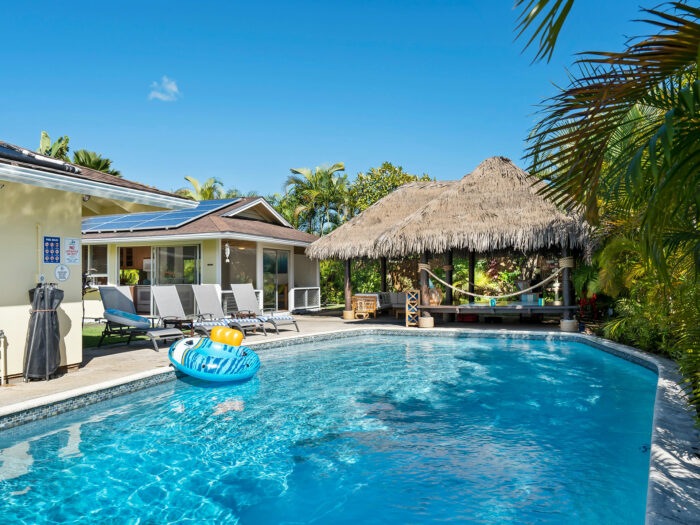
Image credit: Pexels
Aaron Peake continues, “Currency exchange is another area to keep a close eye on.
“Fluctuations in the pound can have a real impact on your budget. If you’re paying in euros, say, even a small shift in the exchange rate could cost you thousands.
“Some people lock in a rate with a currency specialist to protect their budget from future drops in the pound.”
There will be charges involved, but, if you want to know up front what your exchange rate will be, this is something to explore.
14. Can I get a mortgage?
Mortgages are available to buy property overseas, but obtaining one might not be as simple as getting one to buy a house down your street back home.
There are two options: a mortgage through a local bank in the country where you are buying, or a mortgage through your UK bank. The former could be more expensive and will likely require a larger deposit.
You could also use an international mortgage broker to help you find the right mortgage. (They make money through commission.) One popular broker is Simon Conn, whose website is full of useful tips for those buying abroad.
It’s worth bearing in mind, foreign banks will be just as interested in your credit rating and income as banks here in the UK…
15. Don’t forget health cover
Wherever you are going to live, it will be important you get health cover, so check out the health system in your target country and what kind of insurance you will need to take out.
16. Pets abroad

Image credit: Pexels
You can move most pets to most countries, but it can be a complicated and long process.
Check the requirements of your destination country ahead of time for chip, vaccination, pet passport, and quarantine requirements.
If you’ve got several pets, or you’re moving to a tightly-regulated country such as New Zealand or Australia, or the flight involve layovers, or you’ve got a nervous pet or brachycephalic dog, consider using a professional pet exporter to help.
You can find a list on the website of the International Pet and Animal Transportation Association.
17. Death and taxes
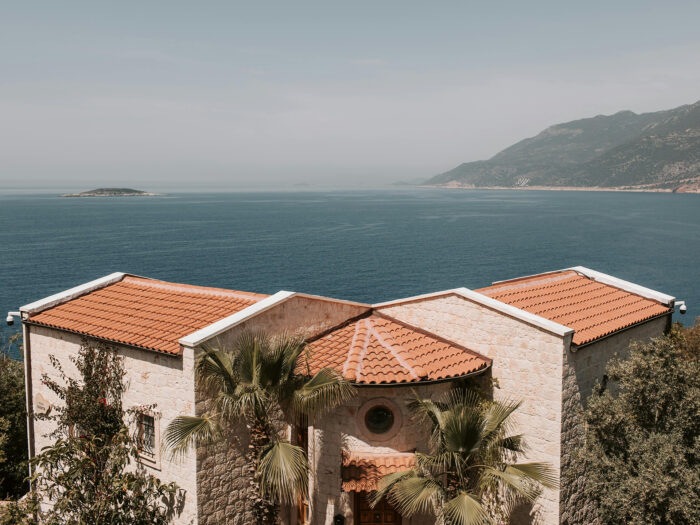
Image credit: Pexels
We’re here to fantasise about a new life overseas, right, not deal with harsh realities. But as the old saying goes, in this world nothing can be said to be certain, except death and taxed. So let’s take a very brief look at each.
Tax for those buying property and living overseas is a whole complicated topic, where, if you move abroad, you will need to consult a specialist experienced in dealing with tax for Brits in your new country.
One thing to be aware of though is the usual rules for stamp duty apply on properties purchased overseas.
Aaron Peake points out, “From a UK tax point of view, buying abroad doesn’t mean you’re off the hook.
“If you rent the property out, you’ll need to declare that income to HMRC, and, if you ever sell the home at a profit, you could be hit with capital gains tax both in the country where the property is and here in the UK, unless a double-tax treaty applies.
“It’s worth checking this before you buy so there are no surprises later.”
Each country has a tax agreement with the UK setting out how expats will be taxed. This covers things like:
- which country has taxing rights over different types of income (employment, dividends, pensions, etc.).
- tax relief for tax paid abroad.
- residency tie-breaker rules (to decide which country you’re a resident of if both claim you)
- the prevention of tax evasion and avoidance through information sharing.
So no. There is no escape.
Inheritance laws also vary hugely from country to country, so, if you do buy abroad, make sure you make a will at the same time to protect your wishes for your property should the worst happen.
18. Don’t take your baggage with you
Last but not least, remember that, however light you travel in terms of your physical baggage, you take your emotional baggage with you wherever you roam.
So if you’ve got ongoing emotional issues that make life hard here, those won’t miraculously disappear with a change of scenery.
If you’re hoping a change of country will miraculously change you and your life for the better, it might be worth pressing pause on your plans and investing in therapy or coaching before you move anywhere.
Starting a new life in a new country can be tough, and the same issues that plague you at home are likely to rear their ugly heads again if you don’t do the hard emotional work on yourself before you go.
READ MORE:
- Amazing one-of-a-kind circular home in former water tank
- Greenhouse guide – find the best glasshouse for your garden
- Expert insight: Designing high-performance prefab homes


